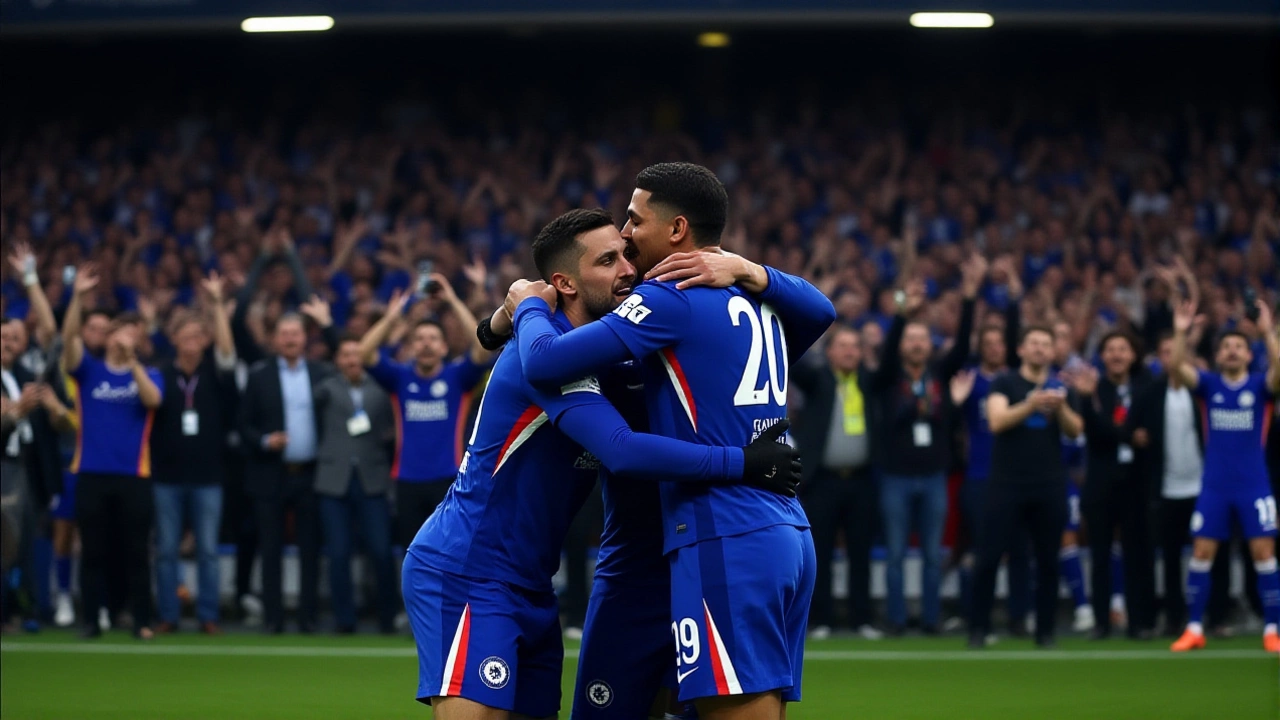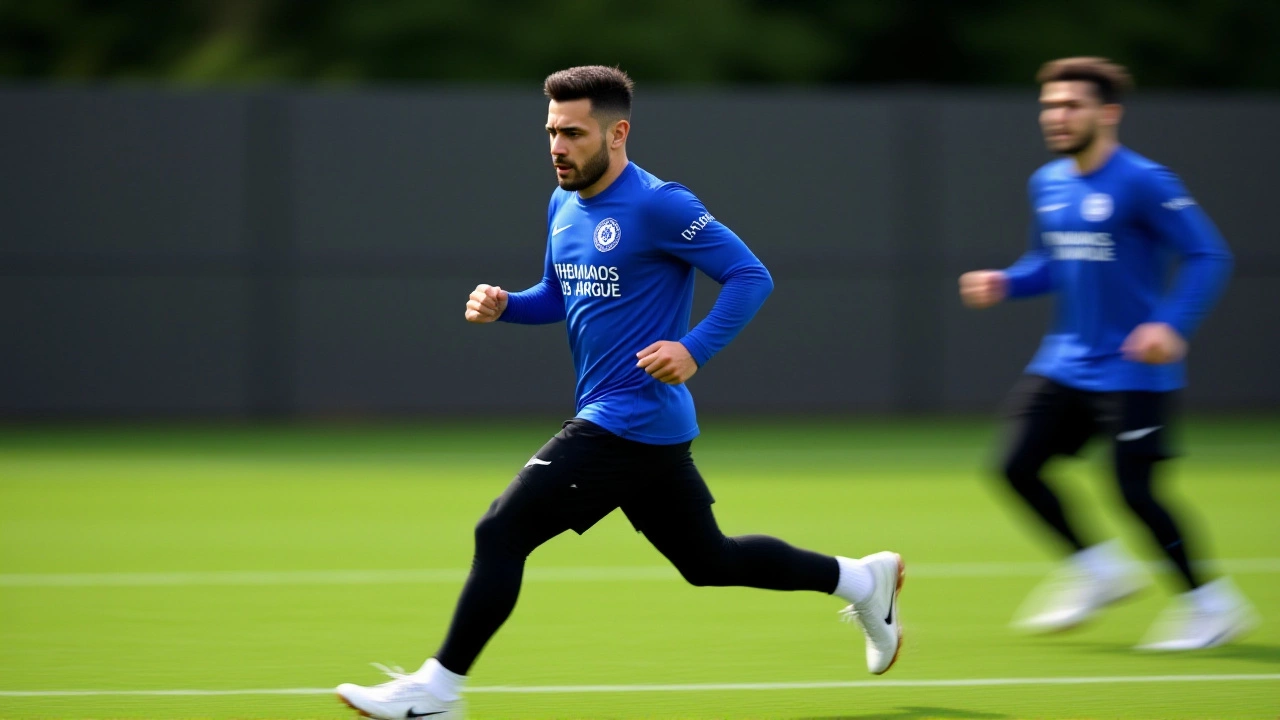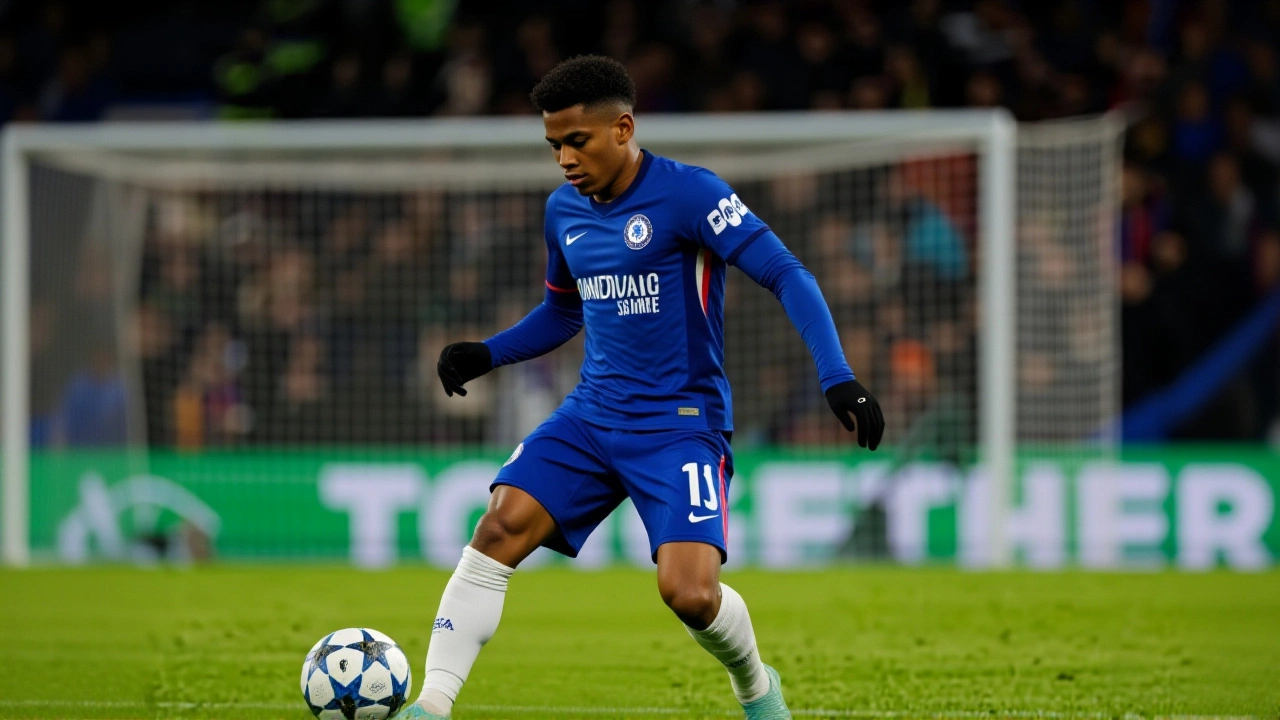On a crisp Tuesday night at Stamford Bridge, Chelsea Football Club delivered a statement performance, crushing FC Barcelona 3-0 in the UEFA Champions LeagueLondon. The real story? An 18-year-old Brazilian winger named Estêvão Willian—just months into his European career—turned the night into something unforgettable. His second-half goal, a dazzling solo run that left two of Barça’s best defenders in the dust, wasn’t just a strike. It was a declaration.
The Night Chelsea Broke Barcelona’s Spirit
It wasn’t supposed to be this easy. Barcelona entered with 57% possession, a reputation for control, and the youngest star in world football, Lamine Yamal, on the wing. But Chelsea, under manager Enzo Maresca, played with a ferocity that caught even seasoned observers off guard. The breakthrough came in the 50th minute—not from a star, but from chaos. A short corner from Marc Cucurella found Pedro Neto, whose flick sent the ball toward goal. Jules Koundé, Barcelona’s usually reliable center-back, and Andreas Christensen collided trying to clear, and the ball trickled in. Own goal. 1-0.
Then came the moment that will be replayed for years. Ten minutes later, Reece James played a diagonal pass to Estêvão Willian on the right flank. What followed was pure poetry: a step-over on Pau Cubarsí, a glide past Alejandro Balde, and then—boom—a rising, right-footed rocket into the top corner. The crowd didn’t just cheer. They stood. Silence, then eruption.
A Red Card, a Rivalry, and a Rising Star
Barcelona’s night unraveled further when captain Ronald Araújo was sent off in the 38th minute—his fifth red card for the club. Two yellows in 12 minutes, the second for a reckless challenge on Cucurella near the touchline. The Uruguayan, once the backbone of Barça’s defense, was visibly distraught as he trudged off. It wasn’t just a tactical blow; it was symbolic. A team built on legacy was being outplayed by youth.
Estêvão, who joined Chelsea from SE Palmeiras in the summer, became only the third teenager in Champions League history to score in each of his first three starts—joining Kylian Mbappé and Erling Haaland. He didn’t celebrate wildly. Just pointed to the sky. After the final whistle, speaking to Amazon Prime, he said: "I don’t really have any words to sum up how I am feeling right now. It really was the perfect night. I am just grateful to God for making everything happen for me. Onwards and upwards from here."

More Than a Win: A Statement for Chelsea’s Future
Statistics tell part of the story: 43% possession, 7 shots to Barcelona’s 3, 0.86 xG to 0.74. But numbers don’t capture the energy. This wasn’t a lucky night. It was a carefully orchestrated dismantling. Enzo Maresca had his side organized, aggressive, and fearless. He didn’t just win—he transformed perceptions. "Estêvão and Lamine Yamal are probably going to be the next Lionel Messi and Cristiano Ronaldo," he said post-match. "The main difference? Estêvão arrived a few years later. But today, he showed he has personality. He has quality."
That’s the thing about this Chelsea side. They’re not just rebuilding. They’re redefining. Their last Champions League triumph? The 2021 final, when Kai Havertz scored the winner. This? It feels bigger. Because it’s not about one goal. It’s about a generation stepping up.
What’s Next for Chelsea and Barcelona?
Chelsea now sit in the top eight of the group stage, firmly in control of their destiny. With Estêvão firing, and midfielders like Enzo Fernández showing flashes of brilliance (despite two disallowed goals), the Blues look like genuine contenders. Maresca’s system—fluid, pressing, and quick on the break—is clicking.
For Barcelona, it’s a wake-up call. Yamal, despite his genius, was isolated. The defense, without Araújo’s presence, looked brittle. And their attack? Lifeless. The 3-0 loss isn’t just a setback—it’s a signal that their rebuild is still incomplete. The pressure on Xavi Hernández is mounting.

Behind the Scenes: The Rise of Estêvão Willian
Estêvão’s journey from São Paulo’s favelas to Stamford Bridge is the stuff of dreams. Signed for £18 million, he was expected to adapt slowly. Instead, he’s already outshining veterans. His pace? Electric. His close control? Unnerving. His composure? Unnatural for an 18-year-old. Scouts at Palmeiras described him as "a blend of Neymar’s flair and Vinícius Jr.’s determination." Now, he’s being compared to legends.
His teammates noticed. "He doesn’t speak much," said Reece James. "But when he runs with the ball… you just step aside and watch. You know something special’s coming."
Frequently Asked Questions
How does Estêvão Willian’s performance compare to other teenage Champions League stars?
Estêvão is only the third teenager ever to score in each of his first three Champions League starts, joining Kylian Mbappé (18 years, 113 days) and Erling Haaland (19 years, 107 days). His goal against Barcelona—scored with his weaker foot, against elite defenders—was more technically complex than Mbappé’s early strikes, which relied more on pace. He’s already outperforming Haaland’s debut campaign in terms of dribbling success rate and shot quality.
Why was Ronald Araújo’s red card so significant for Barcelona?
This was Araújo’s fifth red card in just 114 appearances for Barcelona—a record for the club among defenders. His absence not only left Barça short-handed defensively but also shattered their tactical structure. Without him, their center-back pairing of Jules Koundé and Pau Cubarsí looked inexperienced under pressure. His discipline issues have been a growing concern since 2023, and this red card may trigger internal reviews at the club.
What does this result mean for Chelsea’s Champions League campaign?
Chelsea now lead their group with 10 points from five matches, putting them in pole position to advance. This win—against a traditional powerhouse—signals they’re no longer just a young team learning the ropes. They’re contenders. With Estêvão, Cucurella, and James forming a dynamic right flank, and Maresca’s system gaining cohesion, Chelsea could realistically reach the quarterfinals for the first time since 2021.
How did Chelsea manage to win despite having less possession?
Chelsea’s victory was built on efficiency, not control. They had fewer possessions but created higher-quality chances: 7 shots to Barcelona’s 3, with 2 on target versus Barça’s 1. Their pressing forced 18 turnovers in the final third, and their transitions were lethal. Statistically, their xG (0.86) was higher than Barcelona’s (0.74), proving they made the most of limited opportunities—a hallmark of elite teams.
Is Enzo Maresca under pressure after this win?
Ironically, no—this win silenced critics. Maresca had faced scrutiny after a poor start to the season, including a 4-1 loss to Manchester City. But this result, against a club with Barcelona’s pedigree, has transformed his narrative. Premier Sports analysts noted that "Maresca is no longer being questioned—he’s being studied." His use of youth and tactical discipline is now being emulated by other top managers.
 Nov, 26 2025
Nov, 26 2025
